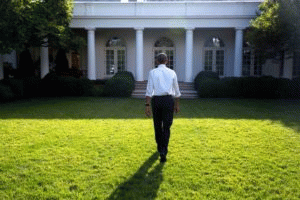From Consortium News
Some people are calling the anti-Russian hysteria being whipped up across the U.S. mainstream news media a new "golden age of American journalism," although it looks to me more like a new age of yellow journalism, prepping the people for more military spending, more "information warfare" and more actual war.
Yes, without doubt, President Trump is a boorish and dangerous demagogue, now highlighted by his reckless speech before the United Nations last week, his schoolyard Tweet taunts toward North Korean leader Kim Jong Un, and his ugly denunciation of black athletes for protesting against police killings of often unarmed African-Americans.
And, yes, I know that some people feel that the evidence-lite and/or false allegations about "Russian meddling" are the golden ticket to Trump's impeachment. But the unprofessional behavior of The New York Times, The Washington Post and pretty much the entire mainstream media regarding Russia-gate cannot be properly justified by the goal of removing Trump from office.
Ethically in journalism, the ends -- however much you might wish them to succeed -- cannot justify the means, if those means involve violating rules of evidence and principles of fairness. Journalism should be a place where all sides get a fair shake, not where some get a bum's rush.
But the U.S. mainstream media has clearly joined the anti-Trump Resistance and hates Russian President Vladimir Putin, too. So, we are given such travesties of journalism as appeared as a banner headline across the front page of Monday's Washington Post, another screed about how Russia supposedly used Facebook ads to flip last November's election for Trump.
The article purports to give the inside story of how Facebook belatedly came to grips with how the "company's social network played a key role in the U.S. election," but actually it is a story about how powerful politicians bullied Facebook into coming up with something -- anything -- to support the narrative of "Russian meddling," including direct interventions by President Obama and Sen. Mark Warner of Virginia, the ranking Democrat on the Senate Intelligence Committee and a key legislator regarding regulation of high-tech industries.
Finding the "Evidence"
In other words, Facebook was sent back again and again to find what Obama and Warner wanted the social media company to find. Eventually, Facebook turned up $100,000 in ads from 2015 into 2017 that supposedly were traced somehow to Russia. These ads apparently addressed political issues in America although Facebook has said most did not pertain directly to the presidential election and some ads were purchased after the election.

President Barack Obama walks through the Rose Garden to the Oval Office following an all-appointees summer event on the South Lawn, June 13, 2016.
(Image by (Official White House Photo by Pete Souza)) Details DMCA
Left out of the Post's latest opus is what a very small pebble these ads were -- even assuming that Russians did toss the $100,000 or so in ad buys into the very large lake of billions of dollars in U.S. political spending for the 2016 election cycle. It also amounts to a miniscule fraction of Facebook's $27 billion in annual revenue.
So the assertion that this alleged "meddling" -- and we've yet to see any evidence connecting these ads to the Russian government -- "played a key role in the U.S. election" is both silly and outrageous, especially given the risks involved in stoking animosities between nuclear-armed Russia and nuclear-armed America.
Even the Post's alarmist article briefly acknowledges that it is still unclear who bought the ads, referring to the purchasers as "suspected Russian operatives." In other words, we don't even know that the $100,000 in ads over three years came from Russians seeking to influence the U.S. election. (By comparison, many Facebook advertisers -- even some small businesses -- spend $100,000 per day on their ads, not $100,000 over three years.)
But this diminutive effort by "suspected Russian operatives" doesn't stop the Post from going on and on about "fake news" and "disinformation," albeit again without offering evidence or specifics of any Russian "fake news" or "disinformation."
It has simply become Official Washington's new groupthink to say that everything linked to Russia or its international TV network RT is "fake news" or "disinformation" even though examples are lacking or often turn out to be false accusations themselves.
(Note: You can view every article as one long page if you sign up as an Advocate Member, or higher).






